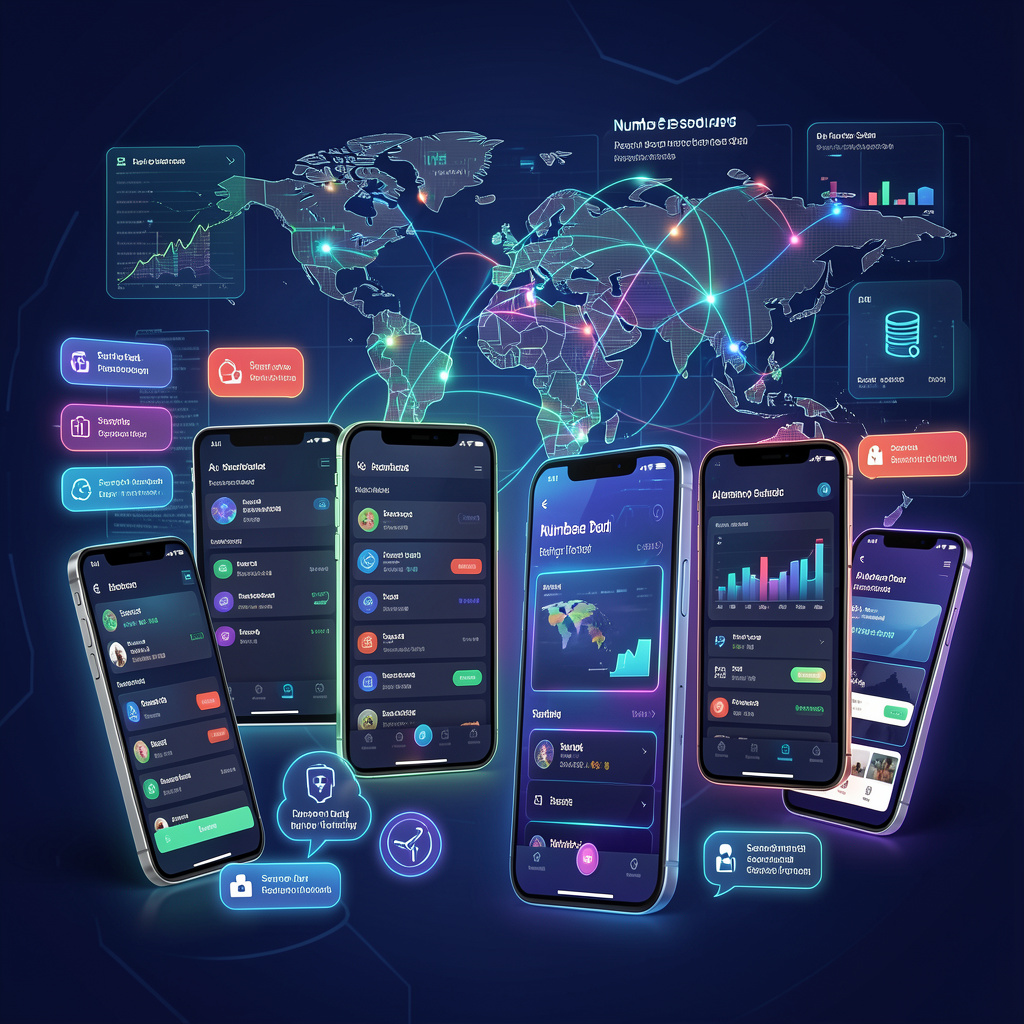The Role of 5G Technology in Enhancing Tourism
The rollout of 5G technology is poised to revolutionize the tourism industry by significantly enhancing connectivity, speed, and capacity.
1. Enhanced Connectivity and Real-Time Services
5G technology provides high-speed internet with lower latency, enabling real-time communication and data exchange. This enhanced connectivity allows for seamless streaming of high-definition content, real-time updates, and instant access to information. Tourists can benefit from improved services such as live guided tours, instant translation services, and interactive experiences without interruptions.
2. Augmented Reality and Virtual Reality
5G’s high bandwidth supports advanced AR and VR applications by delivering the large amounts of data needed for immersive experiences. Tourists can enjoy augmented reality layers over their surroundings, such as interactive historical information or guided navigation, and virtual reality experiences can become more accessible, offering virtual tours of attractions and destinations.
The Impact of Internet of Things (IoT) on Tourism
The Internet of Things (IoT) connects devices and systems through the internet, offering innovative solutions for improving the tourism experience.
1. Smart Destinations
IoT technology can transform cities and tourist destinations into smart environments. For example, IoT-enabled sensors can monitor and manage public amenities, such as smart lighting and waste management systems. These technologies enhance the comfort and convenience of travelers while optimizing resource usage and reducing environmental impact.
2. Personalized Guest Experiences
In accommodations, IoT devices can personalize guest experiences. Smart rooms equipped with IoT devices can adjust lighting, temperature, and entertainment based on guest preferences, which are tracked through connected devices and apps. This personalization enhances comfort and satisfaction during the stay.
Digital Transformation in Travel Agencies
Travel agencies are undergoing digital transformation to adapt to changing consumer behaviors and technological advancements.
1. Online and Mobile Platforms
Travel agencies are increasingly focusing on online and mobile platforms to meet the growing demand for digital solutions. Advanced booking engines, mobile apps, and integrated travel management systems offer customers a more convenient way to plan and book their trips. These platforms also provide real-time updates, booking confirmations, and personalized recommendations.
2. Virtual Consultations and AI Agents
Virtual consultations and AI-powered agents are becoming more common in travel agencies. Virtual consultations allow customers to interact with travel advisors remotely, while AI agents handle routine inquiries, bookings, and personalized recommendations. This digital approach enhances efficiency and accessibility for travelers.
The Rise of Digital Nomadism
The digital nomad lifestyle is growing, driven by advancements in technology that enable remote work and flexible travel.
1. Remote Work Technology
Advances in technology, such as high-speed internet, cloud computing, and collaboration tools, support the digital nomad lifestyle by allowing professionals to work from anywhere. This flexibility enables individuals to travel while maintaining their careers, contributing to the growth of remote work hubs and coworking spaces in popular travel destinations.
2. Travel and Work Integration
Destinations are increasingly catering to digital nomads by offering amenities and services designed for remote work. This includes coworking spaces, high-speed internet, and networking events. Destinations that support digital nomadism attract a new segment of travelers seeking both leisure and professional opportunities.
The Role of Blockchain Technology in Tourism
Blockchain technology, known for its security and transparency, is finding applications in various aspects of the tourism industry.
1. Secure Transactions and Identity Verification
Blockchain technology can enhance transaction security and identity verification in the tourism sector. Decentralized systems offer secure and transparent ways to process payments, reducing the risk of fraud and ensuring the integrity of financial transactions. Blockchain can also streamline identity verification processes, making it easier to verify traveler identities and documentation.
2. Transparent Supply Chains
Blockchain can improve transparency in the tourism supply chain by providing an immutable record of transactions and interactions. This transparency helps ensure the authenticity of products and services, such as verifying the origin of sustainable tourism products or tracking the ethical practices of service providers.
Innovations in Travel Health and Safety Protocols
The COVID-19 pandemic has accelerated the adoption of health and safety innovations in the tourism industry.
1. Health Screening and Sanitization Technologies
Technologies for health screening, such as thermal scanners and rapid testing solutions, have become crucial in managing travel health. Additionally, automated sanitization systems, such as UV-C light disinfection and touchless cleaning technologies, are being implemented to ensure the cleanliness and safety of travel environments.
2. Contactless Services and Digital Health Passports
Contactless services, including mobile check-ins and digital health passports, are becoming standard to reduce physical contact and streamline processes. Digital health passports verify travelers’ health status and vaccination records, facilitating smoother border crossings and access to services while minimizing health risks.
The Future of Travel Analytics and Business Intelligence
Travel analytics and business intelligence are evolving, offering deeper insights and more strategic decision-making capabilities for tourism businesses.
1. Advanced Data Analytics
Advanced data analytics provide actionable insights into traveler behavior, preferences, and market trends. Businesses can leverage these insights to optimize operations, tailor marketing strategies, and enhance customer experiences. Predictive analytics can also forecast future trends, helping businesses anticipate demand and adjust strategies accordingly.
2. AI-Powered Business Intelligence
AI-powered business intelligence tools can analyze vast amounts of data to uncover patterns and trends. These tools offer real-time insights, automate reporting, and provide actionable recommendations. Businesses can use AI to improve decision-making, identify new opportunities, and enhance overall performance.
The Role of Technology in Sustainable Tourism Certification
Technology is playing a key role in supporting and verifying sustainable tourism practices.
1. Digital Certification Systems
Digital certification systems use technology to verify and monitor sustainable practices within the tourism industry. These systems provide a transparent and verifiable way to assess and certify environmental and social performance, ensuring that businesses meet sustainability standards.
2. Monitoring and Reporting Tools
Monitoring and reporting tools powered by technology help track sustainability metrics and compliance. IoT sensors, data analytics, and reporting platforms enable businesses to monitor their environmental impact, such as energy consumption and waste production, and report their performance to stakeholders and certification bodies.
The Integration of Gamification in Travel Marketing
Gamification is being increasingly utilized in travel marketing to engage and motivate travelers.
1. Interactive Campaigns and Challenges
Interactive campaigns and challenges, such as travel-themed quizzes, scavenger hunts, and reward-based games, capture the interest of potential travelers. Gamification elements can drive engagement, encourage participation, and generate buzz around destinations and travel services.
2. Loyalty Programs and Rewards
Gamified loyalty programs offer rewards and incentives through game-like elements, such as points, levels, and badges. These programs enhance customer engagement by making the process of earning and redeeming rewards more enjoyable and interactive.
The Evolution of Digital Content Creation in Tourism
Digital content creation is evolving, with new technologies and platforms shaping how tourism content is produced and consumed.
1. High-Definition and Immersive Content
Advancements in technology enable the creation of high-definition and immersive content, including 360-degree videos, virtual reality experiences, and high-resolution images. This content provides travelers with an enhanced view of destinations and experiences, making it more compelling and persuasive.
2. User-Generated Content and Social Media Integration
User-generated content, such as reviews, photos, and videos shared on social media, plays a significant role in influencing travel decisions. Tourism businesses are leveraging this content to build trust and authenticity, while also engaging with travelers through social media platforms to amplify their reach and impact.
Conclusion
As technology continues to advance, the tourism industry is poised to experience transformative changes across all aspects of travel. From enhancing traveler experiences and operational efficiencies to promoting sustainability and security, technology is reshaping the industry in profound ways.
By embracing these advancements, the tourism sector can offer more personalized, engaging, and responsible travel experiences. It is crucial for industry stakeholders to stay informed about emerging technologies, address ethical and sustainability concerns, and foster collaboration to drive innovation and growth.


